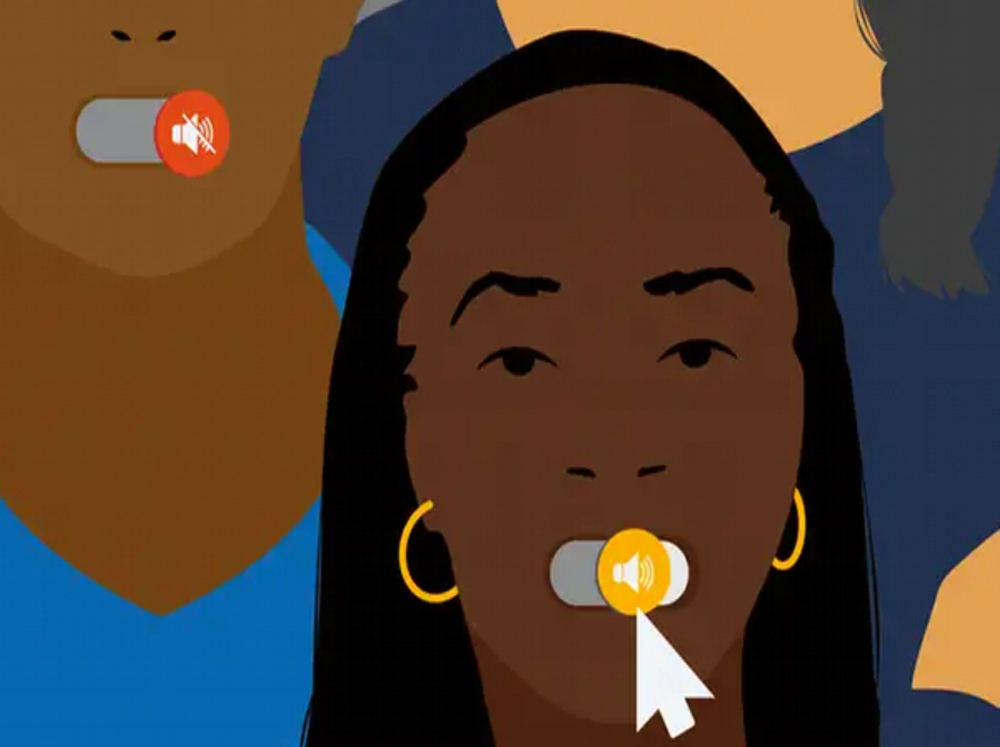
The Hardship of Being a Female Journalist in Sudan
By Thanaa Abdeen
Inaam Ahmedai lived through the toughest moments of her life amidst the most brutal conflict in the regions history, which led to threats on her life, the theft of her belongings, and the destruction of her work equipment.
Inaam Ahmedai is a journalist from the city of Geneina, West Darfur State, which witnessed one of the fiercest tribal conflicts in its history. Before and during the outbreak of the war, she worked as a correspondent for news websites from her hometown.
Earlier, the Sudanese Journalists Union stated that hundreds of journalists, including 112 female journalists, had left their homes in the capital, Khartoum, and moved to the provinces or abroad due to the war. It pointed out the extremely challenging conditions journalists face during the war, making it impossible for them to perform any journalistic tasks, including harassment and looting of equipment.
As of the fourth month of the war, the total violations reached 239 cases, including 7 cases of killing of journalists or their relatives, 7 cases of gunshot injuries, 14 cases of detention, 12 cases of threats, and 8 cases of gunfire. All these violations occurred in Khartoum, Darfur, and other regions.
Ahmedai said that she and her family suffered from the conflict between the army and the Rapid Support Forces in the area, forcing them to flee east to Kassala State. She points out that she is the last journalist to leave the city of Geneina, having witnessed all the horrors of the conflict and the scattered bodies that she cannot forget to this day. She mentioned that she was threatened with murder by an unknown person while covering the events of the conflict and filming them, which also included threats to her family, mother, and siblings, and then her home was looted and burned.
The situation of Inaam Ahmedai is similar to that of many female journalists in Sudan due to the continued war between the army and the Rapid Support Forces that erupted on April 15th of last year. It has had a significant impact on female journalists and journalists in general, with most of them now out of work. However, the greatest impact falls on female journalists, and their suffering increases day by day.
The journalist Maab, who was forced by the war to return to Sennar State, says that she faces exceptional conditions and works in complex and dangerous circumstances. She has been out of work since April 15th and is living the worst nightmares of her life, especially after the Rapid Support Forces ransacked the residential building where she lived. As a result, she lost all her belongings along with her identification papers, certificates, personal belongings, and possessions. Since then, she has been unable to practice her profession.
Maab says, I used to work for a print newspaper, which is currently no longer in publication. I have been laid off from work, and my salary has also been suspended by a Sudanese channel. Due to the security risks, I cannot practice my journalistic work. Many journalists hide their journalistic identities to avoid harassment and arrests by the authorities.
As for Sara Al-Tayeb Ahmed, a television presenter at the national television, she says that the continuation of the war in Sudan has greatly affected the media, leading to the suspension of print newspapers and the cessation of broadcasting by some satellite channels from their headquarters. This has resulted in dire conditions for female journalists and journalists in general.
Sara Al-Tayeb was forced to leave Khartoum for Gezira State two months after the outbreak of the war, and her home and her fathers house were looted, stolen, and burned. She says that the situation in Wad Madani has become extremely difficult in terms of housing, living, high prices, and unstable electricity. She also faced significant challenges when her young son was bitten by a scorpion and she could not find the antivenom.
Female journalists, like women, pay a high price and are subject to sexual assault, theft, and looting, begins journalist Aisha Al-Samani, adding, Personally, I have suffered greatly from this war, and my family and I still live in Khartoum under a barrage of shells and planes. We have been unable to leave due to my fathers health conditions.

